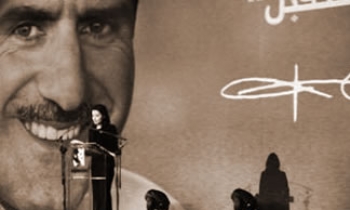A prominent media organisation has warned of tougher times ahead for free expression in Zambia. The editor of the country's only privately-owned newspaper was recently arrested for criticising Zambian President Levy Mwanawasa.

Kellys Kaunda, chairperson of the Zambia chapter of the Media Institute of Southern Africa (MISA), felt saddened that President Mwanawasa had chosen to use a criminal libel law to deal with (Fred) M'membe, who he accused of having ambitions of being president. Fred M'membe, the editor and chief executive officer (CEO) of the Post, was arrested and detained in a police station in Zambia's capital Lusaka on November 9.
According to the International Press Institute (IP), the arrest came after the editor voluntarily surrendered to the authorities at the Kabwata police station. The editor was warned and cautioned under the laws of Zambia, questioned for over an hour, charged with the defamation of Mwanawasa, and then detained in a police cell.
M'membe's decision to attend the police station ended a 48 hour siege at the Post by the country's security forces. The editor was later released from detention and told to appear before a magistrate's court on November 10. The Post editor appeared in court and pleaded "not guilty." M'membe is scheduled to appear in court again on December 5 to set a trial date.
The charge agianst M'membe relates to an editorial in the Post on Novemer 7 criticising President Mwanawasa for his "foolishness, stupidity and lack of humility." It is an offence under section 69 of the Zambia's Penal Code for anyone with intent to bring the President into hatred, ridicule, or contempt to publish any defamatory matter insulting of the President. The insulting matter may be in writing, print, or by word of mouth or in any other form or manner. Upon conviction, one may be sentenced to prison for a term not exceeding three years. There is no provision for a fine.
The editorial was written in response to to Mwanawasa's bitter criticism of Kenneth Kaunda, who led Zambia from independence in 1964 until 1991. Kaunda had suggested that a controversial new draft constitution would have a smoother passage if members of the opposition and others in Zambian civil society were consulted.
Zambia has in recent weeks been shaken by a political crisis over the proposed new constitution. Thousands of demonstrators demonstrated outside parliament on November 1 to press for the new constitution to be adopted before presidential elections in 2006 in which Mwanawasa is expected to seek another term. Mwanawasa has said Zambia does not have the resources to promulgate a new constitution before then.
Kellys Kaunda said the "criminalisation" of freedom of expression was a gross violation of human rights, and added, "It is therefore very ironic that President Mwanawasa, who has previously defended people against criminal libel charges, should be the one to use such laws. The President's action is proof that he is not interested in freedom of speech or freedom of the press."
"Zambians are warned that this is the beginning of tougher times ahead not only for the media but also for ordinary citizens of this country. However, journalists should not be intimidated but stand firm and defend their rights," the MISA Zambia chief cautioned.
IPI director Johann P Fritz said, "This is the second time in six months that M'membe has been forced to attend a police station and face charges of defaming the president. The use of criminal defamation to silence the work of journalists and to foster self-censorship is little more than a tool of repression in the hands of government.

In June, police questioned M'membe and threatened to charge him with defaming the president in connection with a series of editorials accusing Mwanawasa of being a "liar" for allegedly failing to tackle official corruption, and calling on the president to resign. Earlier the same month, supporters of Mwanawasa's ruling Movement for Multiparty Democracy (MMD) attacked and harassed vendors selling The Post in reprisal for articles that accused the president of shielding a former official in the Ministry of Health, Kashiwa Bulaya, from criminal prosecution for alleged corruption. M'membe was repeatedly imprisoned, and the Post censored, under former president Frederick Chiluba, who stepped down in 2002.
"The Zambian government has resorted to the use of a crude and brutal tool to silence commentary and criticism by an internationally acclaimed journalist," said Ann Cooper, executive director of the Committee to Protect Journalists (CPJ). "The criminal charge of defaming the president has no place on the statute books of a democracy." M'membe received CPJ's International Press Freedom Award in 1995.
Fritz said, "If an open society is to be encouraged in the country, the Zambian government must accept the principle that politicians can expect greater criticism than the average person and they should not be tempted to the use the criminal law as protection."
"I would urge the Zambian President to do everything possible to drop the charges against M'membe and to instigate a review of all the country's laws that infringe press freedom and remove them from the statute books. Journalists must be free to practice their profession without fear of harassment and intimidation," the IPI director said.
The day before The Post's critical editorial, Mwanawasa had publicly criticised M'membe and accused him of harbouring political ambitions. "Every day, it concentrates its attacks on me," the president said, referring to The Post. "I am incapable, I am inefficient, I lack capacities, I must be kicked out, I am arrogant, and so forth. Their energy should be directed towards persuading people to register en masse so that they can vote me out, because if they don't, I will surely come back."
[M'membe's editorial can be found here.]









